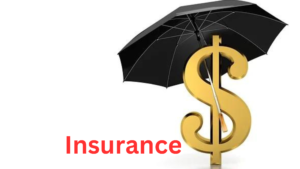Demystifying Insurance Jargon : A Beginner’s Glossary : Let’s Unravel Some Typical Insurance Terms For Newcomers.
Premium : Insurance Premium Is The Cost You Pay To Your Insurance Company To Secure Coverage. This Payment Is Typically Made On A Monthly Or Yearly Basis, Ensuring That You Have The Protection You Need In Case Of Unforeseen Events. Whether It’s For Your Car, Home, Or Health, Paying The Premium Ensures That You Can Rely On Your Insurance To Help You During Challenging Times.
Policy : An Insurance Policy Is Like A Formal Agreement Between You And The Insurance Company, Laying Out All The Important Details And Rules Regarding Your Coverage. It Spells Out What’s Covered, What’s Not, And The Specific Conditions You Need To Meet For Any Potential Claims. This Document Serves As A Clear Roadmap, Ensuring Both You And The Insurer Are On The Same Page, Providing You With A Sense Of Security And Clarity About Your Insurance Protection.

Deductible : Your Insurance Deductible Is The Initial Amount You’re Responsible For Paying Before Your Insurance Kicks In To Cover The Expenses. Let’s Say You Have A $500 Deductible, And You File A $2,000 Claim. In This Case, You’ll Pay The First $500, And Then Your Insurer Will Take Care Of The Remaining $1,500. The Deductible Is Like Your Share Of The Costs, And Once It’s Met, Your Insurance Steps In To Provide Financial Support For The Rest Of The Claim.
Coverage : Insurance Coverage Refers To The Unique Set Of Protections And Advantages Offered By A Particular Insurance Policy. Each Policy Is Tailored To Cover Specific Things, And The Range Of Benefits Can Vary Widely. Depending On The Type Of Insurance You Have, It Will Safeguard You Against Specific Risks Or Provide Support In Various Situations. So, When You Select An Insurance Policy, It’s Essential To Understand What It Covers To Ensure You Have The Right Protection For Your Needs.
Claim : An Insurance Claim Is Simply A Formal Request You Submit To Your Insurance Company When You Experience A Loss Or Encounter An Event That Falls Under The Coverage Of Your Policy. It’s Your Way Of Asking The Insurer To Step In And Provide The Financial Assistance And Support Promised In Your Insurance Agreement. Whether It’s For Damages To Your Property, Medical Expenses, Or Any Covered Incident, Making A Claim Allows You To Access The Benefits And Protection You’ve Been Paying For Through Your Insurance Policy.
Insured : The Insured Is The Individual Or Entity, Such As A Business, That Benefits From The Protection Provided By An Insurance Policy. In Simple Terms, They Are The Ones Who Have Taken Out The Insurance Coverage To Safeguard Themselves Or Their Assets Against Potential Risks And Uncertainties. Whether It’s A Person Seeking Personal Insurance Or A Company Seeking Business Insurance, The Insured Is The Key Beneficiary, Relying On The Policy To Provide Financial Support And Peace Of Mind In Times Of Need.
Demystifying Insurance Jargon
Insurer : The Insurer Is The Company That Offers Insurance Coverage And Financial Security To Individuals Or Businesses.
Policyholder : The Policyholder Is The Individual Who Holds Or Owns The Insurance Policy, Making Them Eligible For The Benefits And Protection Outlined In The Agreement.
Beneficiary : The Beneficiary Is The Person Or Entity Designated To Receive The Insurance Payout In The Unfortunate Event Of The Policyholder’s Passing. They Are The Intended Recipient Of The Insurance Proceeds, Ensuring That The Policyholder’s Loved Ones Or Chosen Recipient Will Be Financially Supported During Difficult Times.
Exclusion : These Are Particular Scenarios Or Conditions Specifically Mentioned In The Insurance Policy, Where Coverage Will Not Be Provided. Knowing What Is Not Covered Is Essential To Understand The Limitations Of Your Policy.
Liability Insurance : This Type Of Coverage Safeguards You From Financial Loss If You Are Legally Held Responsible For Causing Injury Or Damage To Someone Else’s Property.
Underwriting : Insurance Companies Use This Process To Assess Risks Associated With Potential Policyholders And Determine The Premiums They Will Charge For Providing Coverage.
Renewal : When Your Insurance Policy Approaches Its Expiration Date, The Renewal Process Involves Extending The Coverage With Updated Terms And Premiums.
Rider : An Add-on Or Modification To An Existing Insurance Policy That Introduces New Elements Or Alters The Coverage To Better Suit Your Specific Needs.
Demystifying Insurance Jargon : A Beginner’s Glossary
Policy Limit : The Policy Limit Represents The Highest Amount An Insurance Company Will Pay To Cover A Claim That Falls Within The Policy’s Scope.
Term Life Insurance : Term Life Insurance Is A Policy That Offers Coverage For A Set Period, Such As 10, 20, Or 30 Years, Providing Protection During That Specific Term.
Whole Life Insurance : Whole Life Insurance Is A Form Of Permanent Coverage That Lasts Throughout The Policyholder’s Entire Life And Includes A Cash Value Feature That Grows Over Time.
Premiums Vs Deductibles Vs Copay : Premiums Are The Regular Payments You Make To Maintain Your Insurance Coverage. Deductibles Are The Initial Amount You Pay Out Of Your Own Pocket Before Your Insurance Starts Covering Expenses. Copays Are Fixed Fees You Pay For Specific Services, Like Doctor Visits, At The Time Of The Appointment.
Health Insurance Marketplace : An Online Platform That Allows You To Explore And Compare Various Health Insurance Plans To Find The One That Best Suits Your Individual Needs.
Co-insurance : Co-insurance Is The Percentage Of Costs Shared Between You And Your Insurance Company After You’ve Met Your Deductible. Understanding These Fundamental Insurance Terms Can Significantly Improve Your Ability To Navigate The Insurance World. Always Take The Time To Read And Comprehend Your Insurance Policy Before Purchasing It, So You Have A Clear Understanding Of What’s Included And Covered.



